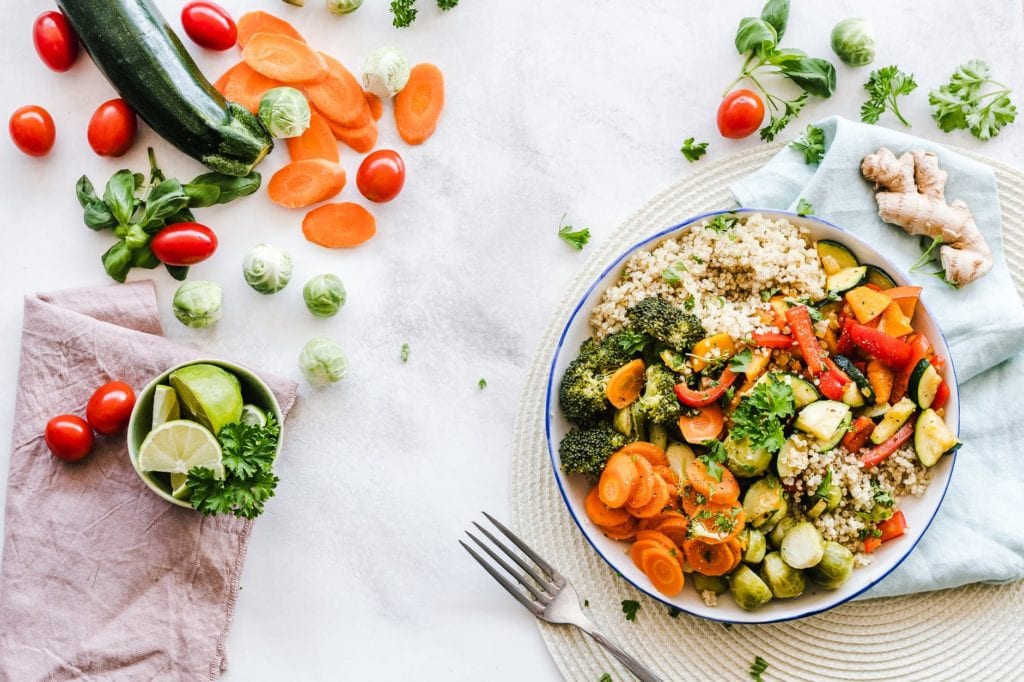5 Reasons Why your Nutritional Needs Change as You Age…
05/09/2019
When you’re younger, nutrition can often consist of eating the occasional salad or piece of fruit. However, as you age, your body will begin to change. Although this isn’t exactly new information, a recent survey of 35-60 year olds has revealed that 6/10 individuals do not prioritise nutrition in their everyday lives.
Not only does your physical appearance begin to change, as skin begins to lose elasticity, but internally your entire anatomy begins to change too. It’s common for individuals to experience more health problems in their everyday lives due to lack of vitamin and nutritional intake and also due to choices that they have made earlier in life.
One of the great things about nutrition is that it’s never too late to begin making the conscious changes with your body. When it comes to food, it is important to know that your body begins to change the way it absorbs the food and drink that you ingest. So, although you could eat multiple takeaways and feel absolutely fine when you were younger, when you’re older, this becomes a lot more detrimental.
The more you know about your body and how your diet needs to change as you age, the better you can begin to feel in yourself. Here are some of the most important reasons why your nutrition needs to change as you age.
Hydration becomes much trickier
Consuming water is an extremely important aspect of nutrition regardless of your age. It’s important to ensure that you consume water in order to keep your body temperature within a normal range; to lubricate your joints; to protect your spine and other body tissues and also to eliminate waste through sweat and urine.
The average water intake changes depending on your gender. The average male adult is required to take an average of 2 litres of water a day, which is the equivalent of over three and a half pints. The average woman is recommended to intake the 1.6 litres, which is equivalent to just under 3 pints.
When you get older, dehydration can be extremely detrimental, as it can lead to acute confusion, UTIs and in severe cases, trips to the hospital.It’s extremely important to ensure that you drink plenty of water when you get older, in order to ensure that you’re properly hydrated and won’t face more severe health problems for prolonged dehydration.
Metabolism is affected
When you’re younger, your metabolism is faster which is why it was much easier to binge on a takeaway or a sweet treat. However, when you’re much older and past your 20s and 30s your metabolism slows down dramatically. A slow metabolism can be quite problematic as it means that you can put on weight quite quickly if you’re not putting the right food into your body. Some individuals are turning to custom meal plans in order to ensure that they can have the right nutrients.
Your tastebuds change
As you age, your taste buds begin to change as they have difficulty detecting taste in the same way. Many individuals are tempted to replace this flavour by increasing their salt intake, however this can be really harmful for your health and can lead to issues such as high cholesterol. Instead, it’s advised to add more spices and seasonings to your food in order to combat this. If you have a sweet tooth, take advantage of this by tucking into sweeter fruits and veggies.
You can’t absorb vitamins the same
Your body also changes the way that it absorbs minerals from your food. This means that although you may have a balanced diet, your body may still not get the minerals that you need. It can be really beneficial to take vitamin tablets and high strength fish oil to combat this.
To be sure that you are getting the appropriate vitamins and nutrients, it’s also advised that you introduce B-12, vitamin D and other supplements to increase your energy input and get into t
Your body begins to change
Ageing bodies can affect your overall nutritional health as well. Loose or ill-fitting dentures for example, can mean that you avoid certain foods and can decrease your overall food intake as a result of this. Medication side effects can also cause gastrointestinal issues and can lead to constipation and loss of appetite.